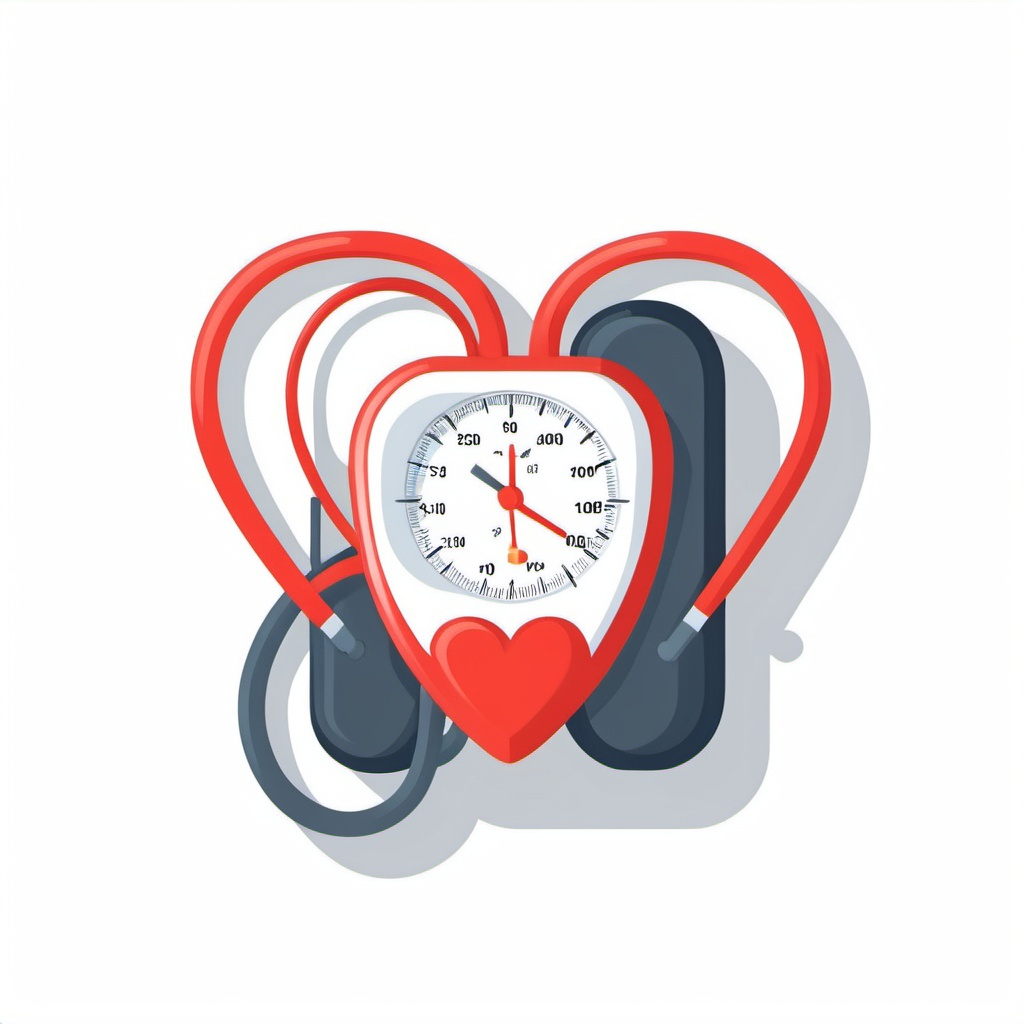
High Blood Pressure
High blood pressure, or hypertension, is a condition where the force of blood against artery walls is consistently too high. It’s often called a “silent killer” because it typically has no symptoms but can lead to serious health problems if untreated.
Symptoms and Causes
While hypertension is often symptomless, severe cases may cause headaches, shortness of breath, or nosebleeds. Chronic high blood pressure damages arteries and increases the risk of heart disease, stroke, and kidney damage.
Primary hypertension develops over time due to factors like aging, genetics, and lifestyle habits. Secondary hypertension results from underlying conditions such as kidney disease, sleep apnea, or hormonal disorders.
Prevalence and Prognosis
Nearly half of U.S. adults have high blood pressure, though many are unaware of their condition. With proper treatment, including lifestyle changes and medications, the risks associated with hypertension can be significantly reduced.
Management and Treatment
- Diet: The DASH diet (Dietary Approaches to Stop Hypertension) emphasizes fruits, vegetables, and low-sodium options.
- Exercise: Regular aerobic activity helps reduce blood pressure.
- Medications: Common options include ACE inhibitors, beta-blockers, and diuretics.
- Lifestyle Changes: Reducing stress, quitting smoking, and limiting alcohol intake are essential.
Living with High Blood Pressure
Managing hypertension requires consistency. Regular monitoring, adherence to prescribed treatments, and routine check-ups can help maintain blood pressure within a healthy range. Support from family and healthcare providers plays a crucial role in long-term success.
High blood pressure, or hypertension, is a condition that affects nearly half of adults in the United States. It’s often called a “silent killer” because it typically shows no symptoms but significantly increases the risk of severe health complications. Here are the top concerns for individuals managing this condition:
Risk of Serious Complications
Hypertension is a major risk factor for life-threatening conditions such as heart attack, stroke, kidney disease, and vision loss. Controlling blood pressure is essential to minimize these risks and improve overall health outcomes.
Consistent Monitoring and Management
Regular blood pressure monitoring is crucial for effective management. Individuals often worry about ensuring accurate readings, adhering to prescribed treatments, and maintaining consistency with lifestyle adjustments.
Medication Side Effects
Many people with hypertension rely on medications such as ACE inhibitors, beta-blockers, or diuretics. However, concerns about potential side effects—like fatigue, dizziness, or swelling—can affect adherence to these treatments.
Diet and Sodium Intake
A high-sodium diet can exacerbate hypertension, making dietary adjustments a key concern. Many individuals struggle with identifying hidden sources of sodium and transitioning to a heart-healthy diet that includes more fruits, vegetables, and whole grains.
Physical Activity
Regular exercise is recommended to help lower blood pressure, but finding safe, effective, and enjoyable activities can be challenging, especially for individuals with limited mobility or coexisting health conditions.
Stress Management
Chronic stress is known to elevate blood pressure levels. Learning stress-reduction techniques such as mindfulness, deep breathing, or yoga is a common concern for individuals seeking better blood pressure control.
Monitoring Other Health Conditions
Hypertension often coexists with other conditions, such as diabetes or high cholesterol. Managing these comorbidities simultaneously requires careful coordination of medical care and lifestyle changes.
Accessibility and Affordability of Care
Regular doctor visits, medications, and specialized monitoring devices can add financial strain. Access to affordable healthcare and resources remains a significant concern for many individuals with hypertension.
Awareness and Education
Understanding the causes, risks, and effective management strategies for hypertension is crucial. Many individuals worry about staying informed and ensuring they are taking the right steps to protect their health.
Featured in High Blood Pressure
- Inflammation: The Root Cause of Almost Every Major Disease You’ve Never Heard About
 Inflammation might sound like something that happens when you sprain your ankle or get a nasty paper cut, but did…
Inflammation might sound like something that happens when you sprain your ankle or get a nasty paper cut, but did… - Stress and Its Impact on Your Physical Health
 Stress doesn’t just affect your mood—it takes a toll on your body too. Chronic stress can contribute to high blood…
Stress doesn’t just affect your mood—it takes a toll on your body too. Chronic stress can contribute to high blood… - Obesity and its Numerous Comorbidities
 Obesity significantly impacts multiple organ systems and is associated with numerous comorbid conditions that can substantially affect health outcomes and…
Obesity significantly impacts multiple organ systems and is associated with numerous comorbid conditions that can substantially affect health outcomes and… - Your Dentist Might Spot Heart Disease Before Your Cardiologist
 You might visit your dentist expecting a routine checkup, but what if they end up being the first to warn…
You might visit your dentist expecting a routine checkup, but what if they end up being the first to warn… - New Study Finds 17 Ways to Lower Your Risk of Stroke, Dementia, and Depression
 What if you could make a few changes to your daily routine — and in doing so, reduce your risk…
What if you could make a few changes to your daily routine — and in doing so, reduce your risk… - The Common Supplement That’s Secretly Damaging Your Heart
 You might think that taking supplements is always a good idea—after all, they’re supposed to boost your health, right? But…
You might think that taking supplements is always a good idea—after all, they’re supposed to boost your health, right? But… - The Heart Attack Warning Sign That Shows Up in Your Feet
 Did you know that your feet might be trying to tell you something important about your heart? It turns out,…
Did you know that your feet might be trying to tell you something important about your heart? It turns out,… - The Morning Drink That’s Secretly Spiking Your Blood Pressure
 Morning routines often start with a comforting, steamy cup of something delicious, but what if that beloved beverage is secretly…
Morning routines often start with a comforting, steamy cup of something delicious, but what if that beloved beverage is secretly… - Taming the Silent Force: Smart Habits to Lower Blood Pressure at Home
 High blood pressure doesn’t always come with warning signs—but left unchecked, it can quietly damage your heart, kidneys, brain, and…
High blood pressure doesn’t always come with warning signs—but left unchecked, it can quietly damage your heart, kidneys, brain, and…
Top Health Stories
- Breathe Easy: COPD Treatment Options ExplainedCOPD can make everyday life feel like you’re trying to suck air…
- A Digestible Holiday Feast That Won’t Ruin the Cheer!Ah, the holidays—a time for family, fun, and way too much food.…
- Leafy Greens for the WinSpinach, kale, and Swiss chard are the unsung heroes of the anti-inflammatory…
- Turmeric: The Golden HealerTurmeric isn’t just a spice; it’s a golden treasure for those dealing…
- Relaxation Tips for Health and HormonesStress is like that uninvited guest at your party—it overstays its welcome…
- Flex Your Way to a Happy ProstateExercise isn’t just about building muscle or fitting into those old jeans—it’s…

